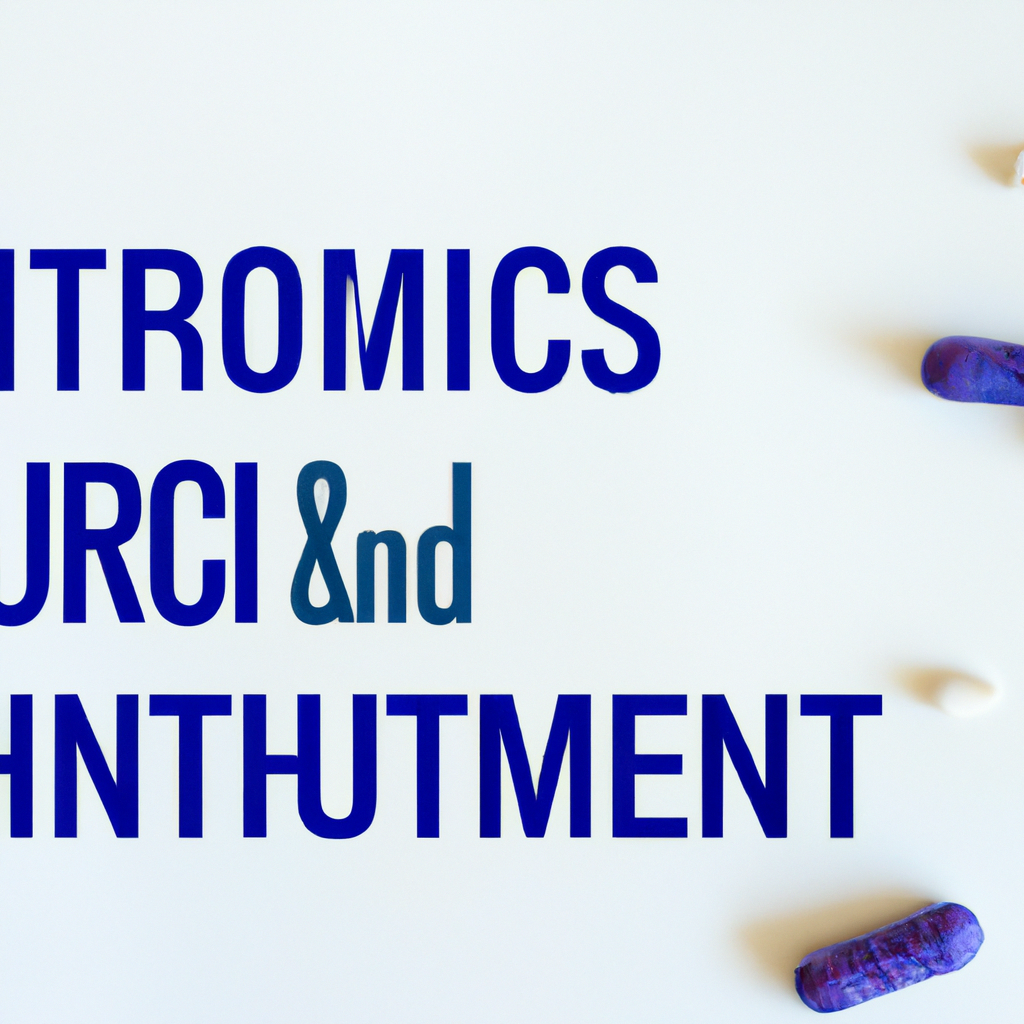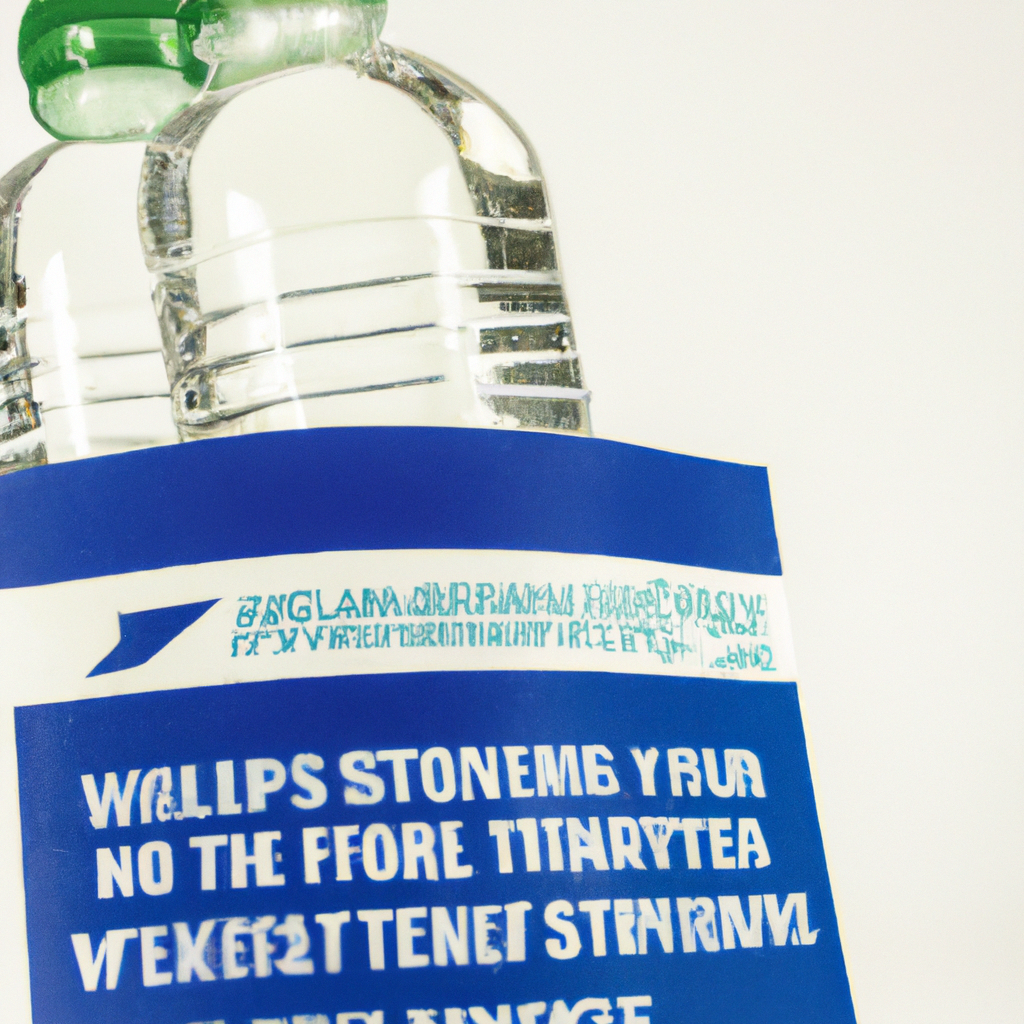Athletic performance and gut health – it’s a connection that might seem a bit hard to grasp, but it matters more than you might think. As athletes – professional or casual – it’s paramount to be aware of all the elements that can affect us. Gut health is no exception, and there are ways to properly take care of it and improve our performance. Let’s dive into the connection between gut health and athletic performance.
1. A Well-Kept Secret: The Hidden Influence of Gut Health on Athletic Performance
Athletes put in lots of hard work and dedication to be ramped up and ready for sacrifice and persistence. But amid those long, grueling hours of practice and performance, they do not often realize the inner workings of their body, and the impacts of their lifestyle on the body during the process.
Gut health is often overlooked when it comes to peak athletic performance, but it should be at the top of any athlete’s list. This overlooked factor has the power to dramatically improve both short term performance and long term health.
Good digestion can enhance performance. The gut is credited with aiding in digestion, absorption, and elimination and can even help regulate moods and energy levels. It helps you stay hydrated by allowing your body to extract adequate amounts of water from the food that you consume. In addition, it also helps regulate blood sugar levels and aids in providing energy.
- The gut communicates with your brain through the production of neurotransmitters. This connection can help or hinder mental and emotional performance.
- Gut health is linked to recovery. When you have a healthy gut, you have better digestion, which allows more nutrients to be absorbed, leading to better recovery.
- A well balanced gut microbiome is essential to your body’s ability to respond to and process stress, hormones, and inflammation.
When an athlete neglects their gut health, the result may be premature fatigue, bloating, indigestion, difficulty sleeping and completing training sessions, and low immunity. It is extremely important to understand the impact that gut health can have on performance and to prioritize it through nutrition, hydration, regular exercise, and stress management. Eating and living healthy can ensure optimal digestive health.
The relationship between sports performance and gut health is still relatively new, but it has already had an immense impact on the health and performance of athletes. It is a well-kept secret, but one that should be taken seriously so that athletes can reach their peak potential.
2. Unearthing the Gut-Performance Correlation: Exploring the Power of the Microbiome
Like never before, researchers are zooming in on the microbiome, the internal body composition made up of bacteria, fungi, and other microscopic life forms. Eating habits, physical activity, and even mental wellbeing are now being linked to the gut microbiome – and the evidence keeps getting stronger.
What Exactly is the Gut Microbiome?
The gut microbiome is an addressable collection of trillions of microorganisms, whose existence is essential to the proper functioning of the human body. Unsightly in appearance these minute microbes work together to form a complex, intricate network that intimately influences human health.
It’s All About Balance
The delicate balance of the gut microbiome is easily disrupted, and often done so inadvertently. Diet plays an essential role in maintaining harmony within the microbiome. Eating too much sugary or fatty food, or not enough fiber can create an imbalance in the microbiome’s microbial composition, leading to inflammation and even disease.
- Too much sugar or fat? Too big a challenge for the gut microbiome.
- Too much food? Not enough fiber? Disrupts balance.
The Role Exercise Plays
Recent studies have revealed a further actionable variable that can help bring balance to the gut’s microbial composition: exercise. According to research, regular physical activity is associated with larger microbial diversity. In other words, the greater the number of bacterial species in the microbiome, the more varied and stable the overall composition becomes.
- Stronger bacterial diversity thanks to physical activity.
- Greater microbial stability as a result.
Interestingly, the correlation appears to go both ways. Regular physical activity can boost microbial diversity, while a more varied and balanced microbiome can have performance-enhancing effects on exercise capacity. Thus, it is absolutely possible to improve one’s performance through mindful consideration of the gut microbiome.
3. Feeding your “Second Brain”: Nurturing Gut Health for Optimal Athletic Excellence
Maintaining the health of your ‘second brain’ – your gut – is key when it comes to fostering athletic excellence. Many athletes fail to recognize the impact of gut health on their overall wellbeing and performance. The brain-gut connection doesn’t just apply to your mental health, it also plays a crucial role in training and athletic performance.
1. Probiotics and Prebiotics for Fuel
Incorporate probiotics and prebiotics into your diet to supplement your gut’s natural flora and ensure optimal performance. Probiotics are beneficial bacteria found in fermented foods like kimchi, sauerkraut, and yogurt, while prebiotics help feed the good bacteria in your gut. Prebiotics can be found in supplements, starchy root vegetables, tree nuts, legumes, and whole grains. Together, probiotics and prebiotics work synergistically to nurture good bacteria and keep your digestive processes running smoothly.
2. Cruciferous Veggies Are Your Friends
Cruciferous vegetables – Brussels sprouts, kale, broccoli, and cauliflower – are essential for cultivating gut health. They boost the microbiome’s response, maintain consistent gut health, and stimulate your body’s natural detoxification processes. Eating them regularly ensures you’ll have the essential vitamins and minerals needed to fuel your athletic endeavors.
3. The Power of Whole Foods
Whole foods are the cornerstone of gut health. Refined and processed foods contain excessive amounts of sugar, fat, and calories, and can be too difficult for your gut to digest. Eating whole foods from unrefined ingredients breaks down easily and provides optimal nourishment. Opt for apples and bananas over sugary snacks, or brown rice or quinoa instead of white rice.
4. Healthy Lifestyle Habits
- Manage stress — Stress can negatively affect your microbiome, reducing levels of beneficial bacteria.
- Get plenty of sleep — Good sleep is essential for optimizing physical performance and strengthening your gut microbiome.
- Exercise regularly — Studies have shown that exercising not only improves your physical health, but can also boost your microbiome.
Next time you’re looking to enhance your physical performance, nourish your gut first. Eating healthy and maintaining a healthy lifestyle will set you up for success and make a world of difference in your athletic achievements.
4. From Digestion to Domination: Leveraging Gut Health to Amp Up Athletic Performance
The performance of any athlete is, to a certain extent, dependent on what’s going on in their gut. Unhealthy gut bacteria can lead to fatigue, poor nutrient absorption, and an inability to perform at peak levels. But that’s not all: proper gut health can help athletes maximize their sporting potential.
So how can athletes ensure their gut health is in top shape? Here are some four easy tips:
- Starve bad bacteria. Eating a low-sugar diet can help reduce the colonization of bad gut bacteria.
- Eat a whole food-based diet. Adding plenty of diverse, plant-rich foods established an environment where good bacteria can thrive and grow.
- Restore beneficial bacteria. A probiotic supplement can provide a quick boost of helpful bacteria to support gut health. Fermented and cultured foods such as sauerkraut and kimchi also offer a natural source of probiotics.
- Get enough fiber. Apples, oats, and beans are all good sources of fiber which can nourish beneficial bacteria.
Encouraging good bacteria is only part of the equation. Athletes must also give them something to feed on. This begins with limiting the amount of processed foods and refined sugars they put into their bodies. In addition, increasing the intake of prebiotic foods – foods that feed good bacteria – is also key. These include nutrient-dense options like garlic, onions, and asparagus.
Another important factor is to make sure athletes get enough hydration. Not only is clean water a basic necessity for athletes, but it can also help flush out toxins from the gut. Dehydration can lead to poor digestion, weakening the gut’s ability to absorb important nutrients.
With these strategies, athletes can put their gut to work for them and reap the rewards of improved performance. By promoting a healthy gut environment and optimizing nutrient intake, they can unlock their body’s maximum athletic potential.
No doubt, good gut health is an essential component of achieving the optimal athletic performance. By giving your gut the nutrients it needs and following a balanced diet, exercise, and lifestyle, your gut will work hard to keep you fueled and running your best. So, run on and perform at your peak, with your gut in mind.



